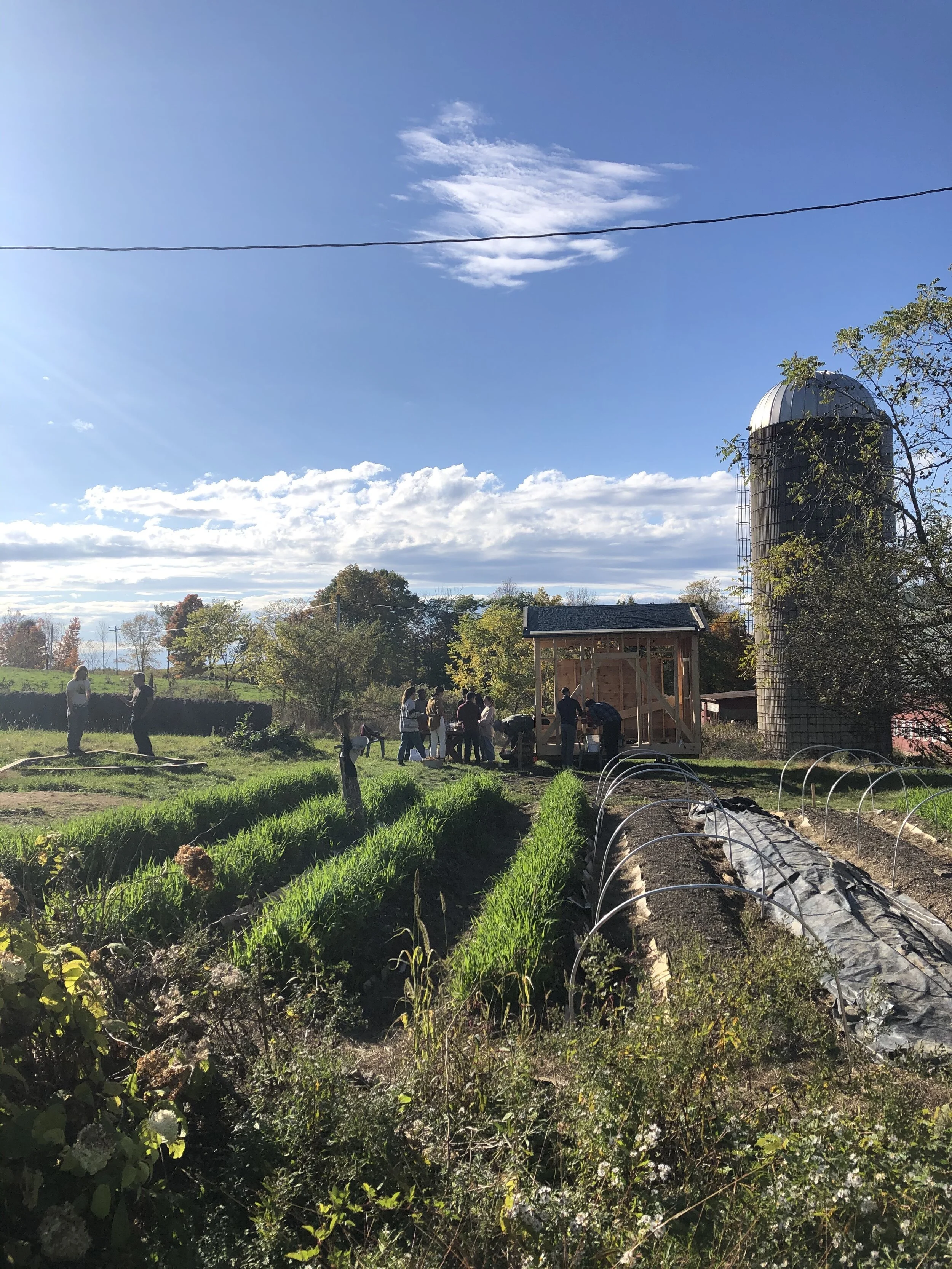ecological soil
the place corps garden, alive with cover crop of oats and peas
Earth is magic. that’s what I’ve learned this year. and that’s especially what i’m learning now as I witness hundreds of tiny seeds birth vibrant, climbing, green beings. i’ve learned that Earth is so much more complex and alive than I ever could have imagined. She is Gaia— an evolving and ever powerful being to whom we all belong. how lucky we are to find home in her embrace.
many humans try very, very hard to act like our species did not come from the same stardust that birthed the other beings who also call this place their home. but in fact, we did, both spiritually and literally, and I wake up every day in awe of this interconnected reality.
i’ve also learned that my role here, as a land steward and ecological designer and grower of food and medicine, is not about control, yield, or production. it’s about creating conditions for Earth to do her magic, and maybe tweaking some conditions along the way in hopes that I might support the nourishment of our species. may i never place my hands in soil thinking that i am in charge.
place corps has offered me so, so many ways i can tweak these conditions reciprocally— permaculture design, natural building, biodynamics, regenerative agriculture, foraging, herbalism, seed saving, natural dye, fermentation— and i am blessed to have practiced all of these arts with my housemates on the land around our house.
one of the most beautiful components of this program arose out of that practicing. we had the opportunity to approach the place corps home as an experiment in regenerative design. skillsets were offered to us by Rachel and Steffen— two wise and seasoned biodynamic farmers— and also by the numerous educators we encountered during the month long permaculture design course we completed last summer.
i’d love to share what emerged from that process, via an auditory exploration of what the soils here now hold.
the Earth is the color of milk chocolate, and there are plenty of rocks. the soils hold the memories of all the past stewards of this place, and now they too hold ours. on the south lawn behind the house, you’ll find a 7 row garden encapsulated within a deer fence built with laughter and sweat. you’ll find raspberry bushes to the east, a grove of abundant plum trees just south, two beehives, four compost piles, a well, an herb garden in the making, baby chestnut trees, baby mulberry trees, and an apple tree in need of pruning. the black walnut tree is proud and abundant, as are the lilac bushes soon to bloom. the maples and white pines live just north of the house, the latter whose needles have invigorated our immune systems all winter and spring. we have two tiny houses we built from local lumber and reclaimed materials— a garden shed and a personal practice space— that were constructed over the course of 4 months by my housemates, Paul (our building instructor), and myself. there’s also 1,024 native perennial starts in a precarious hoop house right now, awaiting their journey into the warm ground of late May. and lastly, if you cross the electric fence that lines the perimeter of our home, you can play with a really silly and friendly bunch of teenage cows on pasture, as my housemates and I do on sunny afternoons.
there’s something about living on a farm that makes me feel like there’s also more to do, and that’s true. there is. even so, the progress we’ve made so far is profound and beautiful, and I receive continual affirmations from the energies of this place that our ‘tweaking of conditions’ is received well.
after co-stewarding this place corps land, working part-time milking cows and harvesting pea shoots at Hawthorne Valley Farm, and helping care for a native pollinator garden with a local botanist down the road, i am overflowing-ly confident that my body was designed to do this work. maybe not forever, but designed in this way nonetheless. bare toes in inviting soil is an affirmation that reverberates through my whole being.
———
for a study group i’m a part of called “jews and the land,” I recently read a few words by Aurora Levins Morales— a Puerto Rican Jewish writer and poet— that sum up my feelings on ecological soil in a unique way. In one her short essays, she writes:
“To do exciting, empowering research and leave it in academic journals and university libraries is like manufacturing unaffordable medicines for deadly diseases.”
I feel the same way about growing food and communing with land. I am painfully aware of the privilege i hold to be with Earth in this way, especially right now. as a result, my land practices are forever connected to the decolonization of agriculture and land ownership, the accessible sharing of foods and medicines, and the upskilling of anyone interested in doing the same.
i have a long, long, long way to go. at the very least, the journey of these past 10 months has helped me figure out where to start.

